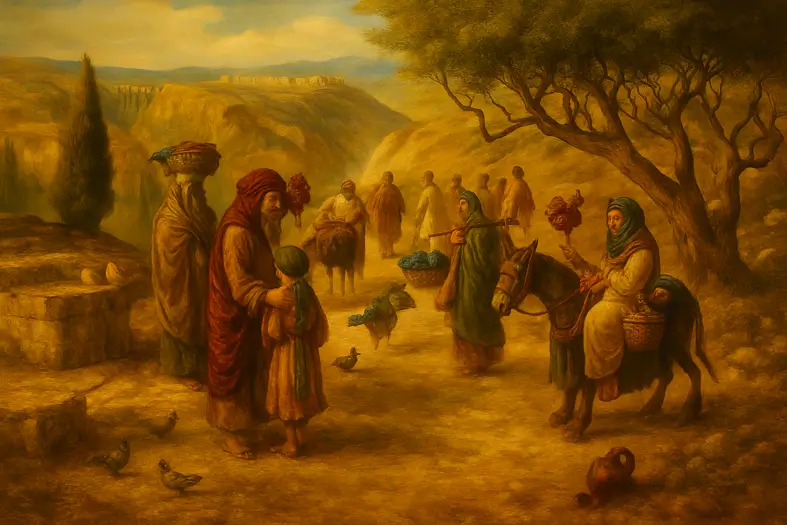


The Torah sets special laws for houses in walled cities: they may be redeemed for one year after sale, but if not redeemed, they do not revert in Yovel.
This mitzvah governs the unique case of houses sold within walled cities. Unlike agricultural land or houses in unwalled villages, such houses may only be redeemed by the seller (or his family) within one year of sale. If not redeemed during that time, the sale becomes permanent, and the house does not revert at Yovel.
Rambam codifies these laws, distinguishing between agricultural fields, village houses, and walled-city houses. The Torah’s differentiation reflects the special role of agricultural land as sacred inheritance, while urban dwellings—especially in fortified cities—were more tied to commerce and settlement than tribal heritage.
This mitzvah shows the Torah’s balanced approach: protecting family land inheritance while allowing flexibility in urban housing markets.
Commentary & Classical Explanation:


Represents Emunah—the deep, inner trust in Hashem’s presence, oneness, and constant involvement in our lives. This badge symbolizes a heartfelt connection to G-d, rooted in belief even when we cannot see. It is the emotional and spiritual core of many mitzvot.
Mitzvot that uphold fairness, honesty, and moral responsibility. Justice is kindness structured — ensuring that society reflects G-d’s order through truth, equity, and accountability.
Mitzvot that strengthen communal life — showing up, participating, supporting, and belonging. Community is where holiness is shared, prayers are multiplied, and responsibility becomes collective.
Mitzvot that define and deepen the relationship between a person and their Creator. These include commandments involving belief, prayer, Shabbat, festivals, sacrifices, and personal holiness — expressions of devotion rooted in divine connection.
Mitzvot that govern ethical behavior, kindness, justice, and responsibility in human relationships. These actions build trust, dignity, and peace between people.

Dive into mitzvos, prayer, and Torah study—each section curated to help you learn, reflect, and live with intention. New insights are added regularly, creating an evolving space for spiritual growth.

Explore the 613 mitzvos and uncover the meaning behind each one. Discover practical ways to integrate them into your daily life with insights, sources, and guided reflection.

Learn the structure, depth, and spiritual intent behind Jewish prayer. Dive into morning blessings, Shema, Amidah, and more—with tools to enrich your daily connection.

Each week’s parsha offers timeless wisdom and modern relevance. Explore summaries, key themes, and mitzvah connections to deepen your understanding of the Torah cycle.